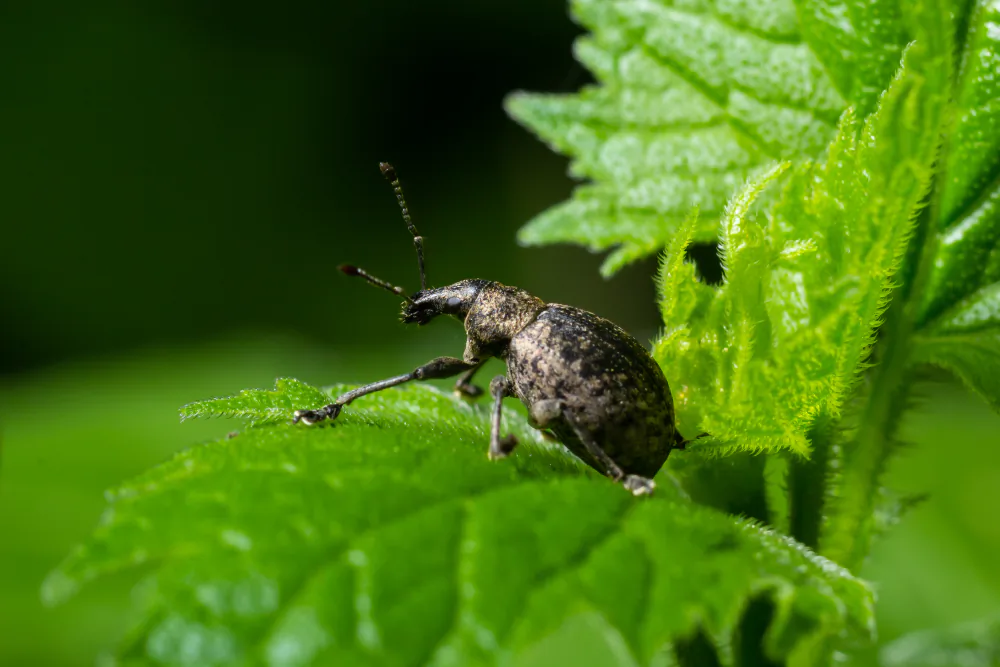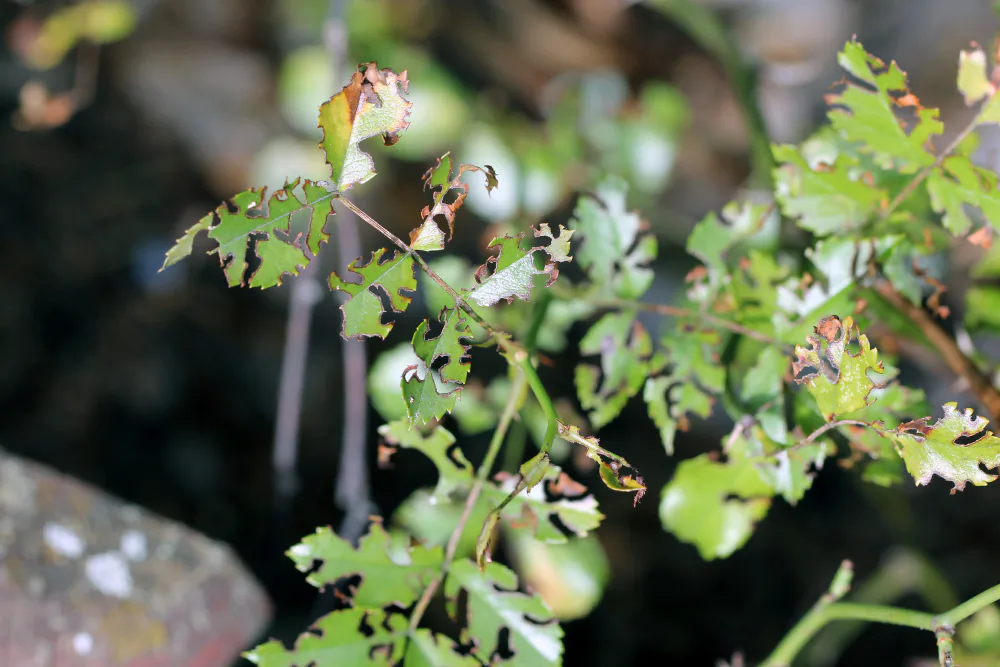
Vine weevils, a common and destructive garden pest, may have a surprising weakness – a sweet tooth. Researchers at NRI and Harper Adams University have discovered that adult vine weevils are attracted to the aroma of apple sauce, a finding that could improve how these pests are monitored and managed.
The study, “An Apple a Day Does not Keep the Weevils Away: Enhancing Vine Weevil Monitoring with Fruit-Based Volatiles,” combined behavioural experiments with chemical analysis to explore how apple-derived smells influence vine weevil activity.
Vine weevils pose a significant challenge for gardeners and commercial growers alike. The adult insects chew on leaves, while their larvae feed on plant roots, often going undetected until plants are seriously damaged. Traditional monitoring methods can be labour-intensive or unreliable, making early detection difficult. This research aims to provide a simple, low-cost tool to help growers identify infestations sooner and take action before significant damage occurs.
In laboratory trials, the researchers tested adult weevils’ preferences using a Y-tube olfactometer – a device that allows insects to choose between two paths, one carrying apple sauce aroma and the other a control with no smell. Different doses of apple sauce were used to see how the strength of the scent affected the weevils’ choices.
Alongside these behavioural tests, the team analysed the chemicals released by the apple sauce to determine which aromas the weevils could detect. Using specialised equipment, they identified the key compounds and then measured the insects’ antennae responses to each one, revealing the scents most attractive to the weevils.

To confirm the findings in a more realistic setting, researchers placed apple sauce–baited refuges in a glasshouse and monitored how many weevils settled in baited versus unbaited locations. They also tested combinations of apple sauce with plant material to see if certain mixtures were even more attractive.
The results indicate that simple fruit-derived aromas can influence vine weevil behaviour, offering a potential foundation for a new type of lure or trap. Such lures could allow growers to monitor pest populations more effectively, detect infestations early, and target treatments more precisely, all while reducing reliance on chemical controls.
David Hall, Professor of Chemical Ecology at NRI and co-author of the report, said:
Professor David Hall said ‘Vine weevil is a widespread pest in the UK, affecting over 150 plant species, including soft fruits and ornamental crops. Adult weevils are nocturnal and larvae feed on roots underground, making infestations hard to detect until significant damage occurs. There are currently no effective attractants for vine weevil, and this work could lead to the development of a really attractive, environmentally friendly bait for traps to monitor and control vine weevil’
Read the full paper here

